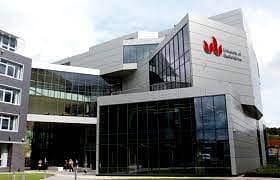With its interdisciplinary approach, this course offers a critical understanding of the global issues affecting how international tourism and aviation are organised and managed. It explores the industry’s 21st-century challenges of rapid growth, the emergence of new destinations, climate change, and the ethics of managing a business in which the prime attractions include the natural environment and people’s culture.
This course combines theoretical and practical knowledge of tourism and aviation management, with topics including different aspects of management; marketing; heritage, cultural, social, environmental and political issues; and sustainable development. It also builds your understanding of the nature, structure and organisation of the aviation and airport industry.
The University of Bedfordshire is a member of The Association for Tourism in Higher Education (ATHE). ATHE is the subject association for tourism in higher education in the UK. It represents universities that are leading providers of tourism programmes.
Why choose this course?
- Develop management skills in travel, aviation and tourism, opening up a range of career paths
- Undertake a range of integrated, project-based activities which set the tourism and aviation industry in the context of business
- Learn contemporary tourism and aviation, ensuring you graduate with up-to-the-minute industry knowledge and news
- Investigate the sensitive and positive interactions between cultures and tourism, and explore the sustainable aspects of international tourism in your final year
- Put theory into practice through workshops, fieldwork, practice weeks, external visits and invited guest speakers from the tourism and aviation industry
- Take the course over four years and include a fee-free year in industry (see below), building your experience and making contacts for the future
- If you need to step up into higher education, start with a Foundation Year (see below) which guarantees your place on the degree course
Unit Information - What will I learn?
Units
- Business Of Travel And Tourism (TAL032-1) Compulsory
- Business Practice Explored (BSS005-1) Compulsory
- Introduction To The Airline Industry (TAL033-1) Compulsory
- Structure And Development Of The Air Transport Industry (TAL035-1) Compulsory
- Using Data To Build Business Practice (BSS004-1) Compulsory
- Airline Revenue Management (TAL052-2) Compulsory
- Events And Destination Marketing (TAL046-2) Compulsory
- Global Airline & Cargo Operations Management (TAL051-2) Compulsory
- Global Airline, Airport And Cargo Operations Management (TAL053-2) Compulsory
- Intercultural Management In Tourism (TAL036-2) Compulsory
- Strategic Airport Planning & Development (TAL050-2) Compulsory
- Strategic Airport Planning & Development (TAL055-2) Compulsory
- Tourism And Society (TAL049-2) Compulsory
- Travel And Tourism Law (TAL034-2) Compulsory
- Continuing Professional Development (MAR027-3) Compulsory
- Managing Safety & Security For Aviation (TAL038-3) Compulsory
- Managing Safety And Security For Air Transport (TAL040-3) Compulsory
- Research Methods (TAL034-3) Compulsory
- Research Project (TAL035-3) Compulsory
- Tourism And Sustainable Development (TAL037-3) Compulsory
- Tourism Destination Development (TAL015-3) Compulsory
How will I be assessed?
In line with the Business School's commitment to practice-based education, a large part of the assessment will relate to your demonstration of your ability to synthesise class room learning with real life scenarios within the international tourism and aviation industry. We will want to see that you understand the theory and have developed critical thinking skills which help you evaluate the relevance of what you have learned. To assess this range of integration of theory and skills into sound practice, we use a range of methods, for example: written exams, written assignments, portfolios, reports, individual or group oral presentations and practical skills assessment. The assessments test the ability to construct a reasoned, sustained and coherent argument, and to articulate it fluently. Students are required to demonstrate an appropriate level of research, of independent argument, and to reference in an appropriate way. Unit assessment is based on specified learning outcomes and threshold criteria.
